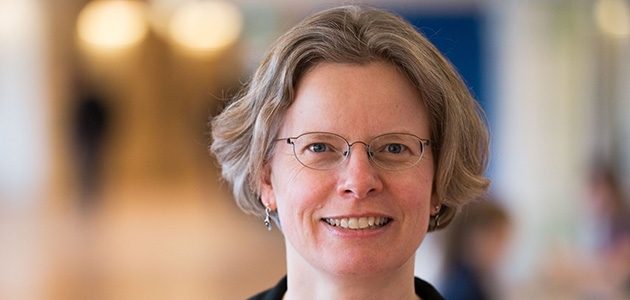New study will contribute to increased integration in the workplace
Through the Swedish government’s fast track programme, many highly qualified refugees have found jobs in occupations facing labour shortages. In a new study, Micheline van Riemsdijk surveys experiences of the initiative aimed at contributing to more integrated workplaces with greater equality.
In Sweden highly educated refugees have exactly the knowledge in demand by employers in a number of occupations with severe labour shortages. Yet many of these highly qualified people face major obstacles in obtaining employment that corresponds with their education and skills. This is key challenge to creating an inclusive society. Micheline van Riemsdijk, associate professor at Uppsala University, is currently studying the social integration of refugees in Swedish workplaces with funding from the Swedish Research Council for Health, Working Life and Welfare (Forte).
“The refugee situation has put a new focus on the need for effective integration initiatives, and a job is a key factor in enabling refugees to participate in the social and cultural life of a society,” van Riemsdijk says. “In my study I follow up a number of new arrivals who found work in various occupations facing severe labour shortages through the government’s fast track programme, and I also meet employers and other parties involved to take note of their experiences and perspectives.”
Wanting to contribute to sustainable labour force participation
According to the Organisation for Economic Co-operation and Development (OECD), every fifth refugee in Europe has completed higher education or the equivalent. The statistics also show that refugees are unemployed, underemployed or over-qualified to a greater extent than both migrant workers and native workers. Sweden is one of the countries that received a large number of asylum seekers in 2015 and 2016, and Micheline van Riemsdijk is also involved in a project that compares the various systems for labour market integration in Sweden, the Netherlands and Germany.
“The differences are of a fundamental nature. For example, whereas the Netherlands creates locally adapted solutions, Sweden works according to a centralised model. Neither method seems more successful than the other, and in the study I have now started, I want to create a more detailed picture of the challenges facing both highly qualified refugees and employers, employment services and politicians. Eventually I hope to translate my material into recommendations that can contribute to more sustainable labour force participation and increased equality, diversity and integration in our workplaces.”

